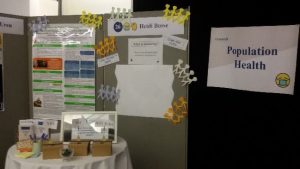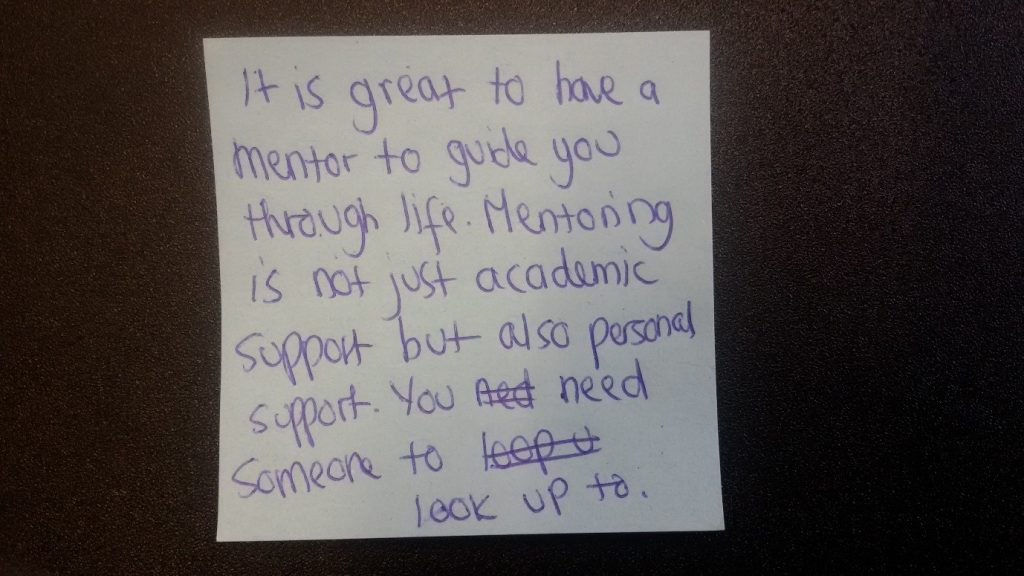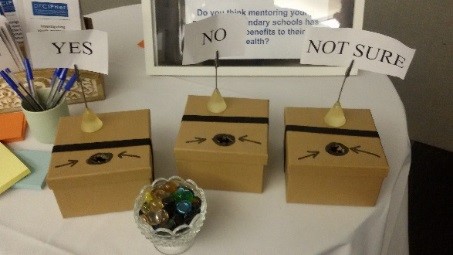Sonam Gurung, postgraduate researcher in the School of Biochemistry, received the Outstanding Award for her work as co-organising the ‘Careers Beyond Biomedical Research’ seminar series in the Faculty of Biomedical Sciences. We spoke to her and her fellow organisers behind the successful series, Lea Hampton O’Neil, Sandra Berlau Neumann, Alice Fodder and Rachael Baker.

With a degree under your belt, while trying to navigate the postgraduate degree, looking into future careers and deciding whether to stay in academia or not seems particularly daunting. Three years ago, the Careers Beyond Biomedical Research (CBBR) seminar was created by a student, Laura Carney, to provide a platform for students to explore possible career options outside of academic research. Having had the opportunity to go to the seminars last year, we were all inspired to help when it came round to having a new committee.
With the help from the previous committee members, Anna Smith and Leila Thuma, we were quickly on our way. Prof Paul Martin was able to help us financially by getting in contact with the Wellcome Trust to ensure smooth running of the seminar series. Prof. George Banting and the Faculty of Biomedical Sciences very graciously also provided us with additional funding. Upon contact, Prof Patty Kuwabara and the heads of schools kindly offered their help to advertise the series to all the students across several faculties.
Organising the CBBR seminar was an amazing experience for all of us, as we had the full liberty to organise and curate the entire programme. As a team we were able to work together and push ourselves to come up with alternate career areas that would enable students to stay connected to science and still be able to use their degrees. This was also an eye-opening experience for us as we were amazed at the wide ranging opportunities available and how within even one field, this could be wide and varied. For this reason, we decided to invite several speakers who followed different career paths within a certain topic, which also gave us the opportunity to meet extremely interesting people from a wide range of careers.
Contacting speakers was often challenging, in particular having the courage to contact bigger names within the field. However, the positive and enthusiastic responses we got from the speakers added to our confidence. Most people were very happy to talk about their careers and help postgrads with their own. Most speakers had themselves come from a science background and therefore, understood the struggles students faced when thinking about the future.

We were truly impressed with the range of people who were interested in our events, from undergraduates to staff and from within Biomedical Sciences to Engineering and Chemistry. We felt we had given an opportunity to all the students to explore more career options, which was particularly evident during the smaller group sessions after the talks, where students got to talk with the speakers, ask questions and make contacts. Speaking to students after was always rewarding as many came out with new career ideas or how to go about following their dream one.
Organising CBBR has been a wonderful challenge which we hope helped the many hundreds of students who attended the events. The feedback, that the talks “reassured” or even “inspired” students to explore various career options, truly indicates to us that this was a worthwhile experience, which we hope will continue in the future.





